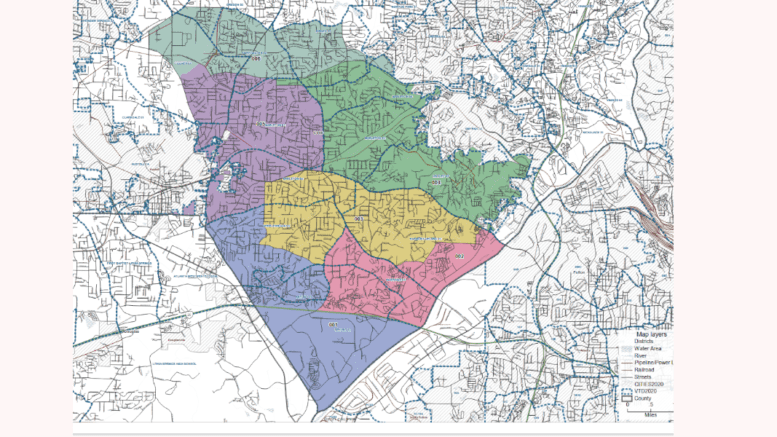I’ve spent the past five days gripped with a sort of low-level panic over the progress of my article about the second transitional meeting of the Mableton City Council. I’ve joked to myself that before I get the article about the second meeting finished, the third meeting will have taken place.
The meeting had a lot of moving parts and kicked off a discussion of three broad categories of decisions that will affect the future of the new city: ethics, taxation, and negotiations with the county over services.
The meeting was long (although a large part of it was carried on behind closed doors in an executive session to discuss a legal issue).
I’m not a person who has writer’s block. Not ever. Once I figure out what things I want to cover, my fingers start typing, and from there I do some research, transcribe, type, edit, rearrange text, and type some more … until the article is in a shape I think it will be understandable and useful for readers.
This brings me to the article in progress about the second transitional meeting of the Mableton City Council. I’ve been going through the cycle I described above for several days now, and the more I typed, the more I realized that the article had too much packed in to be useful for readers. Plus since I tried to include everything, in detail, the chance of including errors in any given part of the article increased due to the sheer volume of text.
So I took a few deep breaths and asked myself: How can I reach an endpoint to this, and in a way that a reader interested in the subject will actually read and get something out of it?
The answer became obvious. Take the issues discussed one at a time, and focus on making each section readable and understandable.
That does three things.
It makes it easier to get things right because I’m focusing on one discussion at a time rather than scattering my attention span across multiple issues and thousands of words of transcription.
It removes the pressure to hammer things out quickly. The Cobb County Courier has never been a breaking news site. And if we tried to be, we’d turn out a lot of sloppy work. But I still feel pressure to get things out before they become stale. Taking the issues one at a time gives doable targets.
Lastly, it allows me to avoid long confusing articles where very few people read past the first two paragraphs.
So where does that leave me now with the last Mableton City Council meeting approaching the one-week-old mark?
The section I’ve made the most progress on is the ethics resolution. That section is at about 700 words now, and I’d guess I have about another 700 to go before it’s ready. After drafting at 1400 words, I can probably make it more readable by editing it down to 900-1000.
So that’s the plan. I might have it finished tomorrow, but I don’t intend to stress over it if it’s not out before Wednesday.
Then I’ll move on to the taxation and revenue decisions that the council will have to take up soon.
When I was in IT, working as a software systems engineer, there was a guideline that acted as a sort of proverb:
“Fast, good, cheap: pick two.”
What that meant was you can have a system built quickly and with high quality, but it won’t be cheap (you’ll have to add staff, buy better development tools, etc).
Alternatively, you can build it fast and cheaply, but it won’t be of high quality.
Or you can make it high quality and inexpensive, but it will take more time.
So applying that to what I’m doing, I’m choosing good and cheap (and shorter than novel-length). In other words, I intend to do as good coverage of each topic as I can with the resources I have. And the only way I can see to do that now is to keep it simple and take one issue and decision before the council at a time.
So when I do get the articles finished, I hope that if you’re a Mableton resident (as I am) you read them, and take the issues before the city council seriously. Also, read about the council meetings in the Marietta Daily Journal and the AJC. We’ll all have different vantage points and takes on the issues before the council, and getting information from a variety of sources gives you a better grasp on the topic.
Any decision made by the city council can be revisited in theory, but once you have a system in place, changing it is easier said than done, and most of the decisions made in these early stages will be with us for a long time.
For a sneak preview of the basis of discussion around the ethics issue, a good starting point is to read the sample ethics ordinance from the Georgia Municipal Association.
